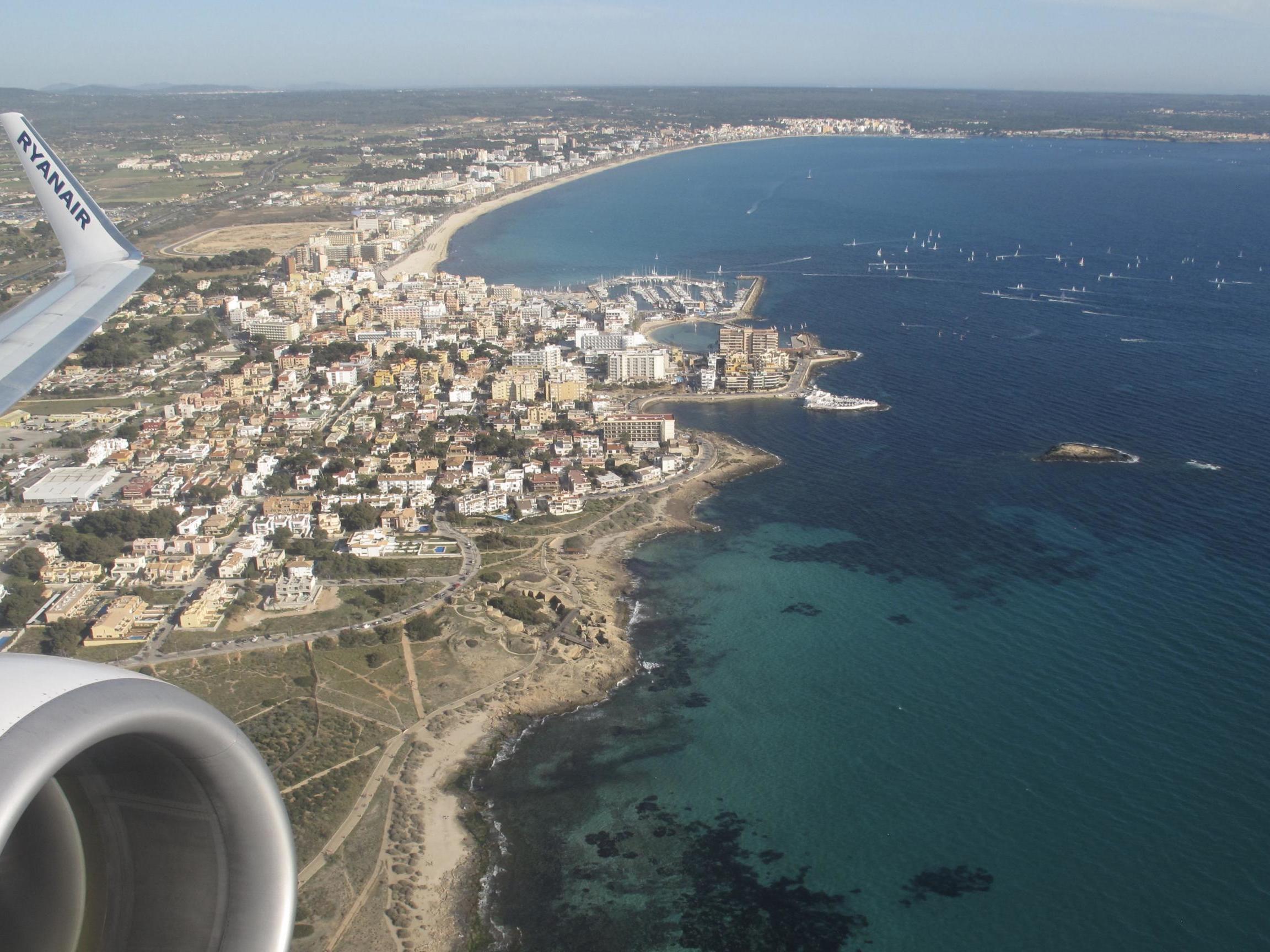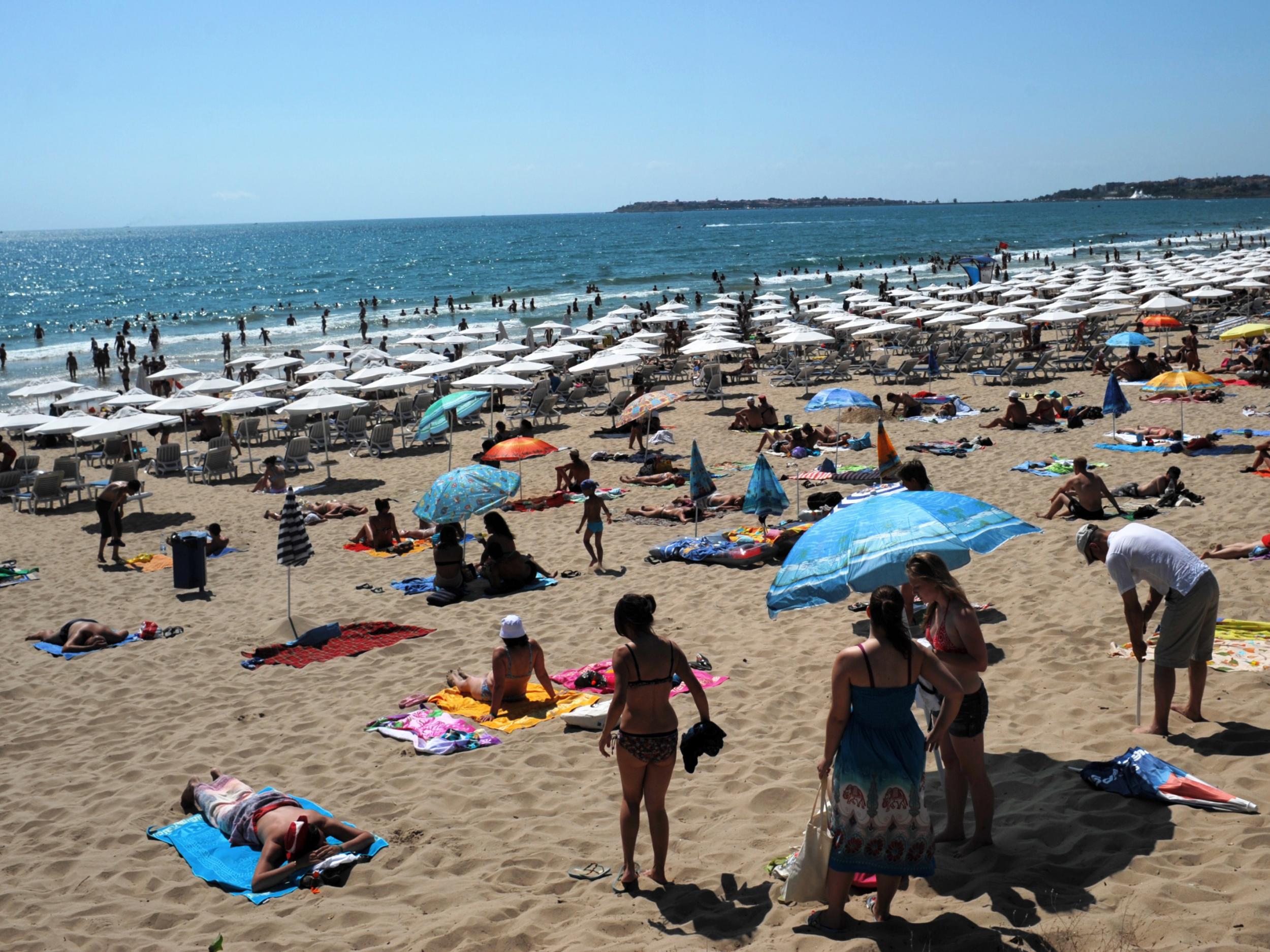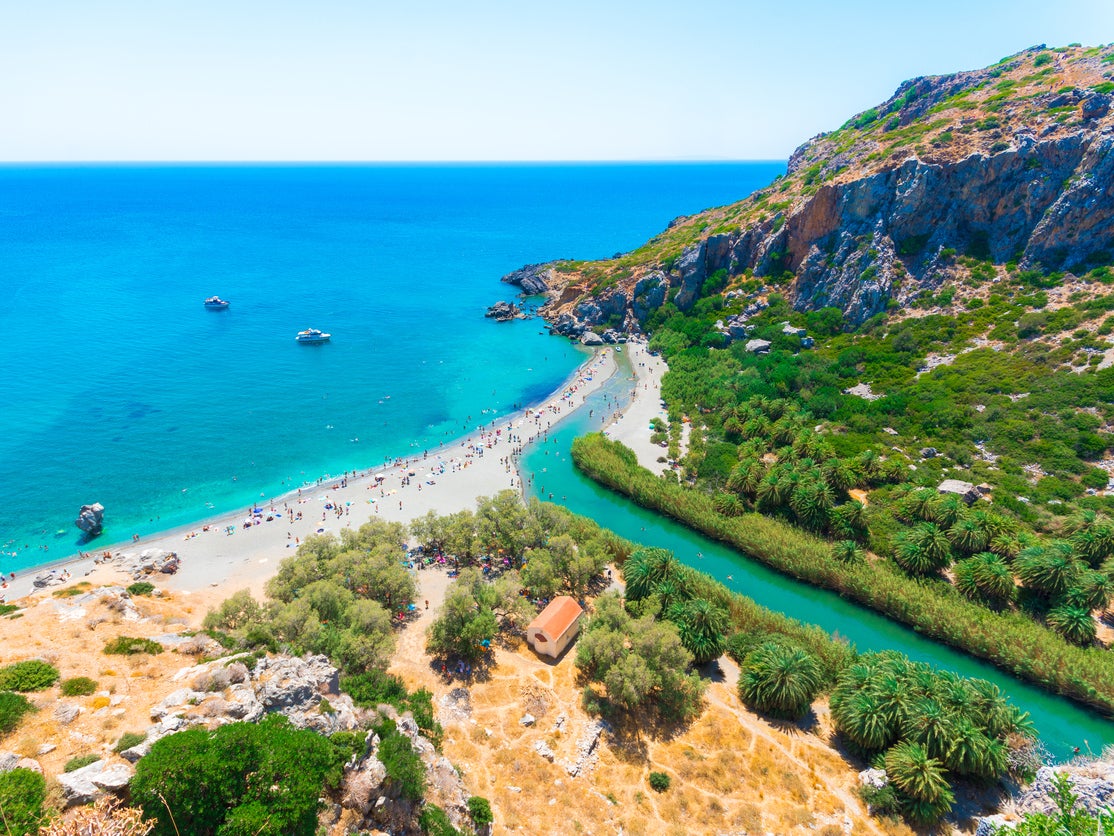Post-Brexit flights, Crete earthquake, BA pilots’ dispute and bargain breaks
Have a question? Ask our expert Simon Calder


Q We’ve booked a Jet2 flight at 6.30am to Palma on 1 November, the day after Boris says we’ll leave the EU. Should we be worried? Are we OK to book non-refundable hotels separately and will we be covered if we book by Mastercard?
Debbie H
A Of all the post-Brexit flight options, yours look the wisest choice. The UK and European Union have already agreed that flights at current levels will continue beyond a no-deal Brexit. So there is every chance that your flight will take off more or less on schedule on the first day after Britain leaves the EU. My confidence is based on this being the first flight of the day. I make no such promises about later flights, because at this stage there is zero visibility of what will happen once your Boeing touches down in Palma if the UK leaves without a deal.
While the UK remains in the European Union, the only check that Spanish passport control can make is whether or not you have a valid passport, and that means up to and including the date of expiry. But in the event of Britain leaving the EU without a deal, the rules change radically: your passport must have six months remaining, and it must not have been issued more than nine years and six months ago.
Airlines will be required to check that all passengers meet those requirements before they are allowed to board. This could delay departure. And in Mallorca you and your fellow passengers may find Spanish passport control is more challenging – asking about length of stay, financial resources and even the state of your health.
There could also be delays in the other direction, with frontier officials checking travellers outbound to the UK more assiduously. This could, in turn, exacerbate delays for Spain-Britain flights. But I stress that all of this is speculation based on the limited information available to us. In terms of hotels: in principle I prefer to book flights and accommodation together, but I can see no problem with committing. If something does go wrong and you cannot reach the location, Mastercard will not be inclined to help you – though a good travel insurance policy should secure a refund.

Q You have been reporting on how badly sterling is doing. Two questions: do you see the rate getting better or even worse? And where can we get best value in Europe?
Josh R
A For an answer to the first question, may I direct you to your MP? The currency markets are responding to the continuing uncertainty surrounding Brexit, with the added ingredient of a more combative attitude of Boris Johnson’s government preparing for a departure from the European Union without an agreement.
Whether or not the currency experts are correct, they believe that a no-deal Brexit would be hugely damaging to the UK economy. As a result, sterling is increasingly unpopular and decreasingly valuable. Were a soft Brexit proposal to emerge, the pound would strengthen. But absent a negotiated settlement, as the much-repeated deadline of 31 October approaches, and it seems likely sterling could sink further.
All the more reason, then, to choose travel shrewdly. A package holiday will give you robust protection against the plummeting pound because most tour operators have “hedged” their euro needs – fixing a rate that, as things have turned out, is highly advantageous. You could benefit from this policy, and find a flight-and-accommodation deal that is better value than a DIY trip.
In terms of destinations, Bulgaria is a stand-out package location for outstanding value. Overall price levels are so low that even a 10 per cent slump in sterling is largely irrelevant: last month I stayed in an excellent boutique hotel in Sofia for £35 for two, and even in the capital you can dine out (with wine) splendidly for £10.
Poland, too, is excellent territory – particularly in the second half of August when the schools in Germany go back and the Baltic coast is emptier. Furthermore, flights to Poland are less susceptible to the school holiday price hike than those to the destinations in the Mediterranean. Flights to Georgia are more expensive because of the sheer distance (2,100 miles from Luton to the central city of Kutaisi, served by Wizz Air). But once you reach the former Soviet republic, prices are as antiquated as the USSR: in May, a good single hotel room cost £7.
So there is still value to be found – but you have to search it out.

Q I have been following the twists and turns of the British Airways’ pilots dispute because we are due to fly to Los Angeles on 13 August. Our issue is that the pilots’ stopover may mean we are at risk? I tried calling BA.
Viviana H
A Millions of passengers booked on late-summer flights on British Airways face uncertainty because of the looming prospect of the first pilots’ strike for 40 years. Of BA’s total pilot workforce of 4,500, three-quarters voted in favour of industrial action. They have been offered what the airline says is an 11.5 per cent pay rise over three years. But the British Airline Pilots’ Association (Balpa) contests that figure and believe its members are due a larger slice of the handsome profits the airline is making.
British Airways sought an injunction to stop the strike. The airline challenged the validity of the ballot but lost both rounds in court. The key question you and millions of other BA passengers want to know: when will a strike take place? The law requires Balpa to give British Airways two weeks’ notice of a strike. Since one was not called yesterday, I calculate the earliest any action could legally begin is Thursday 15 August.
Your question, though, is salient: the last thing BA wants to do is have pilots who fly from Heathrow to Los Angeles on 13 August on strike on 15 August rather than flying the plane back to London. So in the event of a strike, even of one day, the nature of global air travel would inevitably cause “contagion” on days immediately before and after the strike spell.
Yet I see no likelihood of your outbound flight on 13 August being affected. Immediately after the court verdict went against British Airways, I talked to the union’s general secretary, Brian Strutton. He said the two sides will be talking at the conciliation service, Acas, for the rest of the week.
While it is possible the negotiations break down and a strike is immediately called, I sense Balpa is very keen to settle, and will keep talking a while longer. But even if talks were to break down and a strike were to be called on Saturday, the earliest it could begin is 17 August. By then your pilots will be home and resting.

Q I have just read about the earthquake in Crete. I am concerned as I have booked to travel there in 23 days’ time. Will it be safe to travel or is it too early to say? Also, would I be in a position to request a refund or change my holiday if I’m too scared to travel after this?
Denise S
A On Wednesday, the US Geological Survey reported a magnitude 5.2 earthquake with an epicentre halfway between Heraklion and Rethymnon on the north coast of Crete, at a depth of about 50 miles; Stavros Arnaoutakis, the island’s governor, said afterwards there had been no reports of injuries or damage.
This follows on from a magnitude 5.1 earthquake in the Athens area earlier in July. As you probably know, earthquakes are common in Greece, which has the most seismic activity in Europe. While I was on holiday in the Peloponnese last October, a much stronger magnitude 6.8 earthquake hit the island of Zante, and the shock felt substantial even 80 miles away.
The Greek general secretariat for civil protection takes the risk of seismic activity very seriously, and the construction standards insist on resistance to a strong earthquake (which, I can testify, appear to work).
Were a substantial and sustained episode of seismic activity to be expected in Greece, the foreign office would certainly issue a warning to British visitors, which could conceivably go as far as advising against travel. UK holiday companies would bring travellers back from the affected area and not send other holidaymakers to the location.
But short of that very unlikely situation, there are no grounds to cancel or change without penalty. I hope you decide to press ahead with the trip.
Email your question to s@hols.tv or tweet @simoncalder
Join our commenting forum
Join thought-provoking conversations, follow other Independent readers and see their replies
Comments